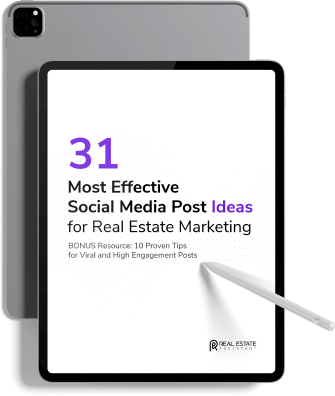Last week we demystified Internet marketing and gave a brief overview of its main components; search engine marketing, search engine optimization, and affiliate marketing. This week, we’re going to look at ways that real estate marketing with a special focus on search engine marketing (SEM) can benefit you for the real estate professional.
Real estate agents and brokers who hire Real Estate Virtual Assistants have sometimes been unfairly painted as being indifferent to new technologies and business methodologies such as SEM. While it’s true that much of your business relies on personal connections and face-to-face communication, real estate agents, like all business savvy professionals know that personal connections only get you so far. And in today’s increasingly competitive market, you need to go very far. SEM can help you expand your reach by promoting your business and expanding your sales pipeline across the Internet.
Using search engines has become one of the most popular activities on the Internet, second only to email. But with millions of websites and billions of web pages, potential home buyers need a tool that can sift through this clutter to find the realtor websites relevant to their search. Thanks mostly to the techniques pioneered by Google, search engines have become remarkably effective at providing results that are highly relevant to the term or phrase the user searches on. But to be relevant, you have to be found.
The importance of being found
You may have great inventory, a fantastic local clientele, and a snazzy new website, but if your business website doesn’t show up on the first two pages of Google (or Yahoo, MSN, or Ask Jeeves), you’re not getting the exposure you need to remain competitive. Studies have proven what most Internet users know already people generally do not look past the first two pages of search results. And with over 71% of home buyers initiating their home search on the Internet (according to the National Association of Realtors), you can’t afford to miss out on all of those active buyers.
As we mentioned last week, SEM is a comprehensive marketing strategy that includes search engine optimization (SEO) and sponsored listings. Purchasing sponsored listings is a surefire way to get your website to the top of the results page quickly without waiting for the results of a comprehensive SEO campaign. Identifying right keywords is crucial for the success of SEO / SEM campaigns (e.g., http://www.homeseekers.com targets Homes for Sale and http://www.thesanguineteam.com/ targets Fort Myers Beach Florida Real Estate as their main keywords. We will dedicate a full newsletter to SEO (and how to rank for the above mentioned keywords) next week, so keep your eyes peeled for that.
But using the major search engines is just a part of an effective SEM strategy. A lead tracking system lets you make more money off of your website with far less work, and an email marketing campaign keeps your prospects and clients up-to-date while positively setting you apart from your competition.
Sponsored (paid) listings
Sponsored, or paid listings are a great way to get fast visibility on the major search engines. Also called pay-per-click, (PPC) sponsored listings are those that show up at the top of search engines such as Google in a blue box or in a column along the right side of the page. These results are clearly labeled “Sponsored listings.” The more popular the keyword, the more paid listings come up.
Google AdWords is by far the most popular sponsored listings program, mainly because the Google network is used by 80% of all Internet users. The AdWord program allows you to create your own ads based upon the keywords most relevant to your business. You can also choose to have Google write the ad for you for an extra fee. And not only do you can choose for your ads to show up on the Google results page, they will also show up on sites in the Google Network, such as AOL, EarthLink, Blogger, and HowStuffWorks. When someone clicks on your ad, you pay Google a predetermined fee.
Here’s how AdWords and other programs like it work:
1.You determine what keywords are most relevant to your business (eg, “Brentwood real estate” “Full service mortgage brokerage” “Buy and Hold properties”).
2.Decide how much you can spend on the campaign. Once your budget is used up, the campaign will end, or you will increase your budget.
3.Your ads start running within minutes after you submit your billing information. You can easily keep track of your ad performance online to see how certain words are performing against others.
While sponsored listings are the best way to get high rankings quickly, they are no substitute for a thorough SEO campaign. Again, we’ll be going into more detail about SEO in next week’s FAN.
Lead tracking
While most real estate agents have a website, not all are making money off of them. Sponsored listings and SEO can help attract leads, but to truly get the most out of SEM, you will want to develop a lead tracking system to target the customers and prospects most likely to be interested in your services.
Lead tracking can help your real estate business become stronger by attracting quality leads. Lead tracking brings both short and long term benefits to your company giving you instant access to information about each sales prospect while also helping to streamline and manage the sales process. Lead tracking will help you gain a critical edge on the competition by:
1.Providing better service to prospects and existing customers
2.Improving time management
3.Providing valuable marketing information that improves strategic planning
Lead tracking not only helps you attract more customers, it also tracks your return on investment, so you know exactly how much each lead is worth, how many leads convert into transactions, and your overall return on investment in your advertising dollars.
Fidelity Assets offers a lead tracking solution tailored to the specific needs of those in the real estate business. All leads that are generated from that campaign become your exclusive leads. We do not sell them to anyone else. All leads come directly to you from people who are searching for homes right now to buy and/or sell on the Internet in the areas where you serve.
Email marketing
So now you have high rankings on the search engines and lead tracking is bringing in numerous high-quality prospects. Now what? Email marketing is the icing on the SEM cake. It impresses your prospects by allowing you to send them valuable information on the market and it helps you to stay fresh in their minds. Maybe your prospect is an old client, a walk-in from your last open house, or someone who found your website through an Internet search. No matter who they are, you can increase your chances of selling to them if you occasionally send up-to-the-minute real estate news, buying or selling strategies, or developing trends in the market.
Fidelity Assets can set up an effective email marketing campaign that saves you time and increases leads. We can provide content for your emails and help you to expand your mailing list automating a formerly laborious task that often fell by the wayside. We can even send out holiday and birthday greetings on your behalf. Learn more about our marketing service here.



